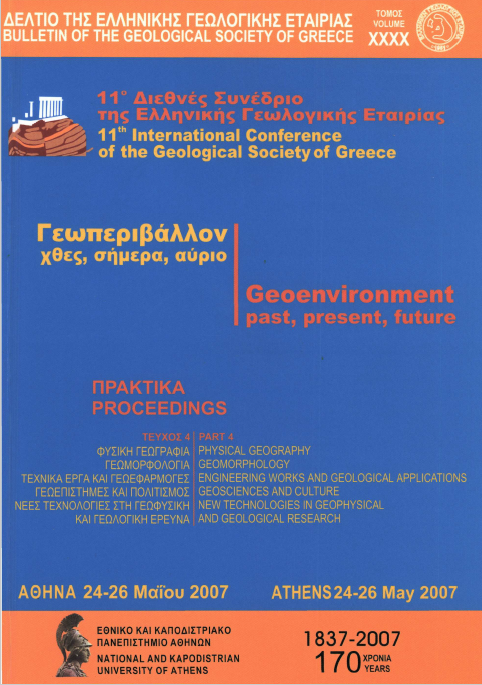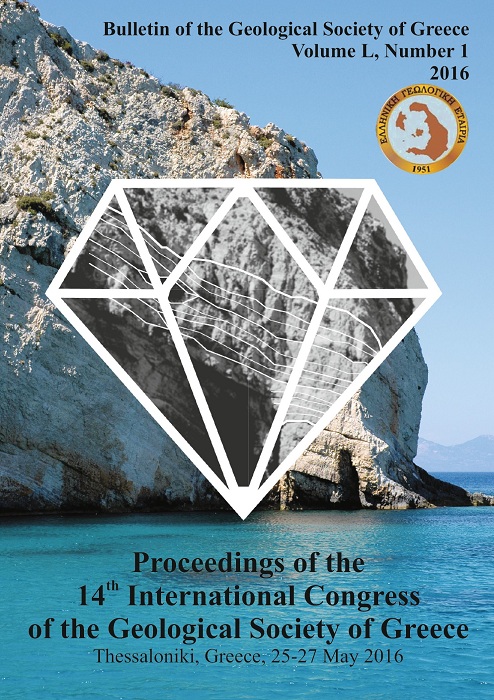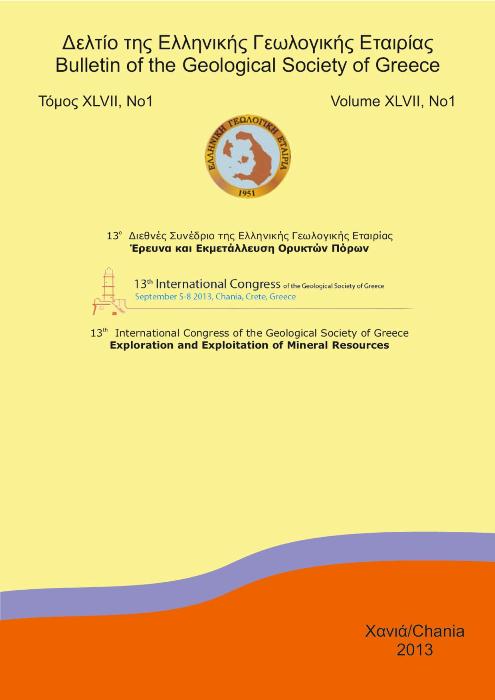ASSESSMENT OF SUSCEPTIBILITY TO SΕA-LΕVEL RISE IN THE COASTAL AREA OF PIERIA PREFECTURE

Abstract
Tourism development in Greece has led to increasing pressure on coastal areas, which makes the study of sensitive coastal areas essential, in order to find appropriate solutions for their shielding. The aim of this study is an estimation of the effects of an anticipated sea level rise for the touristically developed part of Pieria Prefecture, which includes the settlements Paralia, Skala of Katerini, Olympic Beach, Korinos Beach and extends north to the area of the Kitrous saltworks and south to the mouth of Mavroneri river. Therefore the Coastal Vulnerability Index (CVI) is applied, in an attempt to determine the susceptible parts to the potential sea level rise. CVI depends on the following parameters: (a) coastal geomorphology, (b) coastal slope, (c) shoreline erosion/accretion rate, (d) relative sea-level rise fluctuations, (e) mean tidal range and (f) mean significant wave height. The classification of the coast, which is of particular socio-economic significance since it hosts urbanized areas, into five CVI classes (from very low vulnerability to very high vulnerability), showed that 43.6% of the entire coastline is of very high vulnerability.
Article Details
- How to Cite
-
Mavromatidi, A., & Karymbalis, E. (2016). ASSESSMENT OF SUSCEPTIBILITY TO SΕA-LΕVEL RISE IN THE COASTAL AREA OF PIERIA PREFECTURE. Bulletin of the Geological Society of Greece, 50(3), 1721–1729. https://doi.org/10.12681/bgsg.11895
- Section
- Remote Sensing and GIS

This work is licensed under a Creative Commons Attribution-NonCommercial 4.0 International License.
Authors who publish with this journal agree to the following terms:
Authors retain copyright and grant the journal right of first publication with the work simultaneously licensed under a Creative Commons Attribution Non-Commercial License that allows others to share the work with an acknowledgement of the work's authorship and initial publication in this journal.
Authors are able to enter into separate, additional contractual arrangements for the non-exclusive distribution of the journal's published version of the work (e.g. post it to an institutional repository or publish it in a book), with an acknowledgement of its initial publication in this journal. Authors are permitted and encouraged to post their work online (preferably in institutional repositories or on their website) prior to and during the submission process, as it can lead to productive exchanges, as well as earlier and greater citation of published work.






